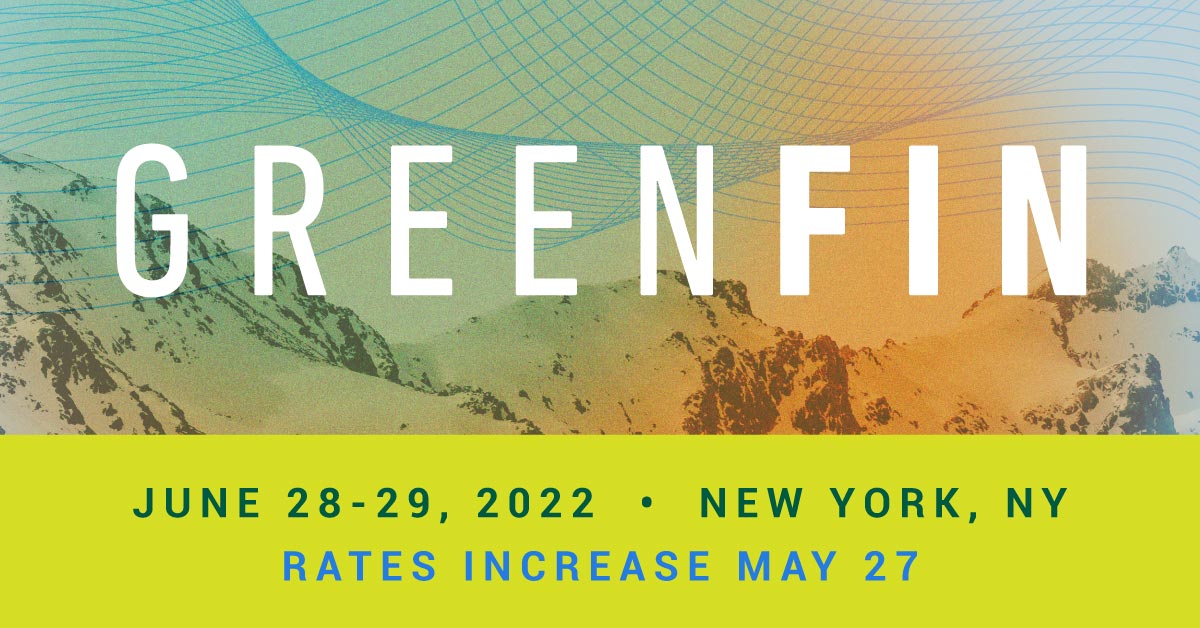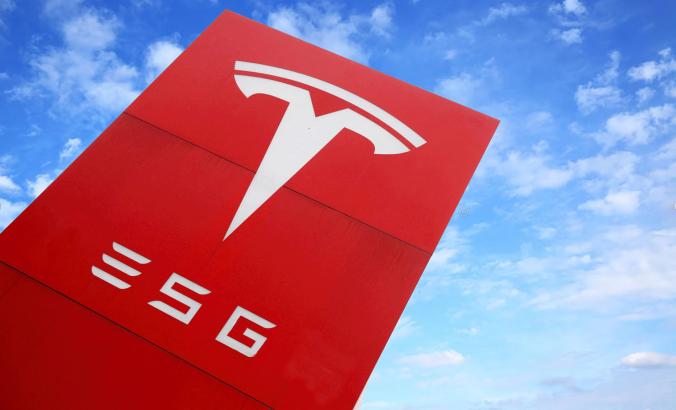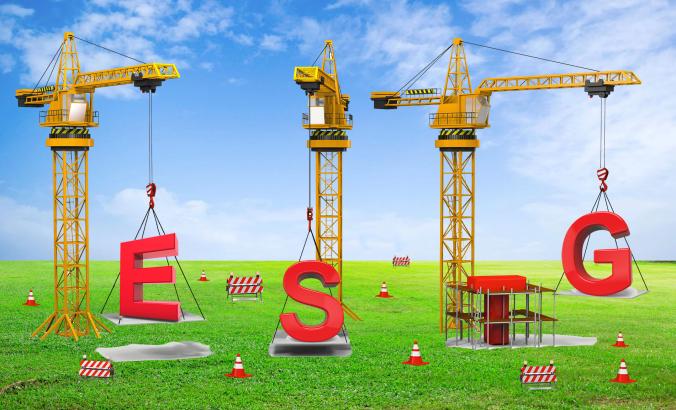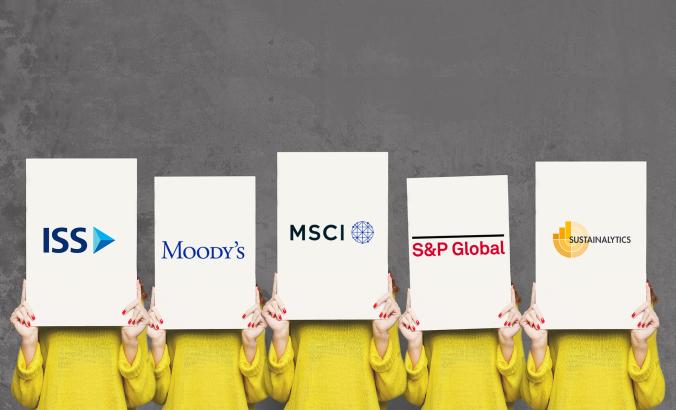三部分系列中的第三。阅读第一部分hereand Part Twohere.
Let’s start by stipulating a couple of things: ESG ratings are first and foremost an independent opinion about the environmental, social and governance risks facing a company and its shareholders, not the risks to people and the planet. And the ratings can also have value as an information resource for capital markets, as well as for customers, suppliers, partners, government agencies — even landlords — to evaluate a company’s strengths and weaknesses.
If you buy that, it begs a question: Don’t credit ratings already do these things?
如果您还不确定答案,请考虑this page从标准普尔全球对公司传统(非ESG)信用评级的评级,我从中大量借用了上述开头段落的词语:
S&P Credit Ratings … provide your credit credential — an independent opinion of your organization's overall creditworthiness and financial strength. It can be used as an information tool for capital markets participants and your organization's counterparties — banks, clients, suppliers, joint-venture partners, brokers, government agencies — even landlords.
因此,如果S&P,Moody's,Fitch和其他主要信用评级公司已经将风险纳入信用评级,我们是否真的需要另一套与风险有关的评级?如果将ESG评级和信用评级汇总到一个单一的系统中,会更好吗?那会发生吗?
简短的答案:大概,绝对是最终。
A bigger, more existential question about ESG ratings is whether they’re fit for purpose, leading companies and investors to actually move the needle on the planet’s most pressing problems. And whether, as some critics claim, the ratings are more of a marketing vehicle for investment firms to generate高管理费而不是积极变化的实际催化剂。
关于ESG评级的一个更大,更存在的问题是,它们是否是领导公司和投资者实际上在地球上最紧迫的问题上移动针头的问题。
As part of my recent inquiry into the world of ESG ratings, I’ve been pondering these questions, discussing them with those I’ve interviewed and reading some of the growing body of literature that’s critical of the entire ESG ecosystem.
But first, let’s briefly review what we’ve learned so far in this series:
- ESG评级主要是关于公司对人和地球的影响,正面或负面影响的风险。
- The methodologies ratings agencies use are complex, and while the raters openly publish them, the methodologies aren’t necessarily understandable by companies and investors, let alone by other stakeholders.
- 评分背后的数据也很复杂,涵盖了数百个主题,其中一些主观是主观的。当公司不提供请求的信息时,评级公司经常“算”它 - 也就是说,根据他们构建的复杂模型提供的假设来填补数据的空白。
- The ratings can play a helpful role for the rated companies, not just in their external communications but also in assessing themselves, benchmarking against peers and competitors, and identifying opportunities for improvement.
风险与奖励
The ratings firms I spoke to insisted that the ESG risk information they provide complements traditional financial ratings by providing company information on topics outside their purview.
"It has a very specific use, which is as a supplementary piece of information for investment analysis, and for whether or not these companies will actually face larger risks than what traditional investment analysis is able to find," said Linda-Eling Lee, global head of ESG and climate research at MSCI.
"In the end, it all will converge at some point in time," Kristina Rüter, global head of ESG methodology at ISS, told me. "But for this transition period, we think a lot of input and a lot of learning from the ESG perspective and experience is needed, and will still be needed for a long time, because it's a complementary but completely different approach that involves much more qualitative analysis. Every large investor is using ESG out of the understanding and conviction that the financial analysis does not cover the full scope of risks, and they need this information."
Should ESG ratings firms look beyond risk to include a company’s impacts. Richard Mattison, president of S&P Global Sustainable1, thinks so. "We don't believe that an ESG score should just be about risk," he told me. "I understand that risk is perfectly natural for an asset manager, who remains to be convinced about ESG as a risk argument. Having said that, real-world impact is also important. And frankly, they are linked."
As an example, Mattison cited a company pursuing sustainable agriculture to produce palm oil. Along the way, it invests in protecting the rainforest and taking other measures to ensure the sustainability of its supply.
"That might not be perceived as reduced financial risk by some, because you're not getting any [financial] return from that. But actually, you’re making a real-world impact. If ESG is supposed to be forward-looking, we need to capture the impact side as well as what is traditionally and narrowly viewed as financially relevant indicators from a risk perspective. We think both are important to drive and accelerate progress."
他补充说,如果客户或利益相关者迫使公司减轻其造成的环境损失,则无法随着时间的推移造成财务风险。
"Our thesis has always been that the public is not going to bear that negative externality forever," MSCI’s Lee said. "And at some point, companies have to internalize those costs. So that the companies that are more forward-looking, that are more agile, they can see that. And if they start to incorporate that into the way they run their business and is part of their strategy, then they will be protected when those kinds of costs come to bear."
In other words, today’s negative externalities could become tomorrow’s financial risks, and addressing them now can mitigate both
与过去相比,这是一个重大的变化,当时外部性是:公司产生的成本不在其损益表或资产负债表之外 - 也就是其他人的问题。And while the lion’s share of negative environmental and social costs still are socialized — paid for by taxpayers, customers, communities, healthcare providers and others, almost anyone but the company that caused them — the mere fact that they may at least now be accounted for by ratings agencies is a start. An evolution, not yet a revolution.
Shining a light
ESG评级可以使公司受益,而不仅仅是投资者。对于花费数千个小时来编译和披露评估者使用的数据的公司来说,这是个好消息。2020年surveyby the European Commission found that companies spend an average of 316 days a year completing sustainability reports and other disclosures, "and an average of 155 days per year responding to and managing sustainability-related ratings and ranking providers."
It's not for naught, Aniket Shah, managing director and global head of ESG at the investment banking firm Jefferies Group, told me. "What ESG has done, and done it more well than poorly, is that it has socialized and educated the financial and business worlds on a bunch of topics that they weren't knowledgeable about before. And maybe it's because I am a part-time academic that I think that education is really powerful."
Today’s negative externalities could become tomorrow’s financial risks.
Evan Harvey, chief sustainability officer at Nasdaq, agrees that the benefits of ratings go beyond the score itself — but only if the company seizes the opportunity. "To me, the ultimate question is, are you evaluating your own performance based on these ratings?" he asked. "Are you organically driving the business towards better goals and more progressive projects and impacts that are positive based on your own analysis? Or are you relying, just like investors are, on these ratings too much in order to estimate your value?"
Some ratings firms are helping companies make better use of the data behind their ratings. S&P, for example, offers a freeCorporate Sustainability Assessment帮助公司“建立可持续性基准并获得相对于同行公司的可持续性绩效的必威体育2018独立见解。”它每年邀请多达8,000家公司参加,尽管实际上只有几百家公司。
Rich Mattison described the process. "If you are a company going through this assessment, you'd log into a portal and see all of this [ESG] information with explanations and help. They get free benchmarking tools to allow them to compare themselves with their peer groups. The companies find this very useful, because it allows them to understand the leading topics of note from our perspective and how they compare with their peers on a number of different elements."
It’s not just an online tool, he added: "We have real people helping companies work their way through this process. It is a bit of work."
Fit for purpose?
The bigger question is whether ESG ratings are truly fit for the purpose for which they were intended. And here, the evidence is mixed at best as to whether highly rated firms produce superior returns, known as "alpha," for investors.
Consider anarticle由机构投资者于今年早些时候发布。作者 - 分别是波士顿大学Questrom商学院和塔夫茨大学的弗莱彻学校的学者安德鲁·金(Andrew A.的确,我们最好的猜测是,将资金流入ESG基金代表了一种营销引起的趋势,该趋势既不会使地球受益,也不会为投资者提供更高的回报,但可能会延迟政府的监管。”
金和普克(King and Pucker)被驳斥,或者至少提供了“逻辑问题”,该公司对公司的四个主要主张进行了反对:它会产生更高的利润,表明较高的股票收益,降低资本成本并吸引投资流量。
None of those things is necessarily true, they argued: There is no standard definition of what constitutes good ESG. Ratings firms’ assessments are based on subjective judgments, extrapolation and incomplete data. Many studies that report ESG outperformance are flawed and are based on short-time horizons that are not statistically significant. And "a positive relationship between high-ESG companies and alpha may result from correlation — not causation."
The authors cite acclaimed academic George Serafeim at Harvard Business School, who, among other things, teaches a course called "Risks, Opportunities and Investments in an Era of Climate Change." Serafeim, along with co-authors Michael E. Porter and Mark Kramer,写that "despite countless studies, there has never been conclusive evidence that socially responsible screens deliver alpha."
Radical agenda
对ESG收视率和投资的批评似乎正在增长,也许不可避免的强大运动将数万亿美元转移到以ESG为主题的资金中,这使某些人拒绝了“唤醒”。
None other than Elon Musk, the entrepreneur and would-be social media maven, has called the current ways of measuring environmental, social and governance issues "fundamentally flawed." And that was among the nicer things he has said. Last month, hetweeted, "I am increasingly convinced that corporate ESG is the Devil Incarnate."
Perhaps. The devil, certainly, is in the details.
在我们的一切 - 政治世界中,ESG和气候披露至少在美国的臭名昭著。德克萨斯州的顶级财务官员希望take on giant investment firms— especially BlackRock — for pledging to curb climate change through their investments, saying such climate commitments amount to a "boycott" of fossil fuel companies. The Lone Star State and West Virginia have both颁布的金融法规that aim to divest state funds such as retirement accounts from ESG-minded investment firms. Meanwhile, former Vice President Mike Pence last weekcalled on Republican states控制“推动激进ESG议程”的投资基金。
Such pushback "will probably gain steam as midterm elections approach," the New York Timesadvised.
So, can the ESG ratings world evolve to address the pushback and criticism?
Suzanne Fallender is among the hopeful. "I think in general ratings are at an important inflection point, given that you have so many investors and ratings agencies either relooking at their methodology or new people coming into this space that bring different levels of expertise or perspectives," said Fallender, vice president, global ESG at Prologis and a longtime student of ESG ratings in her previous role at Intel. "And this is against the backdrop of more regulation and standardization of ESG reporting, with a real focus on data quality, assurance, all the internal controls processes. We've been talking about it for a long time, but I think it's really coming to a point here."
In the end, there’s even a chance that ESG risk ratings could merge with the financial stuff.
"I think ESG ceases to be a standalone concept in 2024," Jefferies’ Aniket Shah told me. "I might even revise that and say 2023 because the end goal of all of us had who entered the space was to integrate these ideas into our regulation, into our risk assessment and into the way we think about future opportunities of companies. We are getting close to that because the disclosures are getting better, thanks to the ESG movement."
What will it take to accelerate that kind of singularity?
埃文·哈维(Evan Harvey)说:“明显的答案是时间,我们没有。”“这是一个新生的行业和新生的方法论,反复试验使我们走上了更好的状态,就像金融指标一样。花了80年的时间才能达到我们现在与之相关的有效状态。不幸的事实是,在这个领域,我们有一个截止日期,这是迫在眉睫的。我们没有数年和数年的时间来正确。”
谢谢阅读。您可以找到过去的文章betway必威手机用户端. Also, I invite you to在推特上关注我andLinkedIn, subscribe to my Monday morning newsletter,GreenBuzz, from which this was reprinted, and listen toGreenBiz 350,我的每周播客与希瑟·克兰西(Heather Clancy)共同主持。






